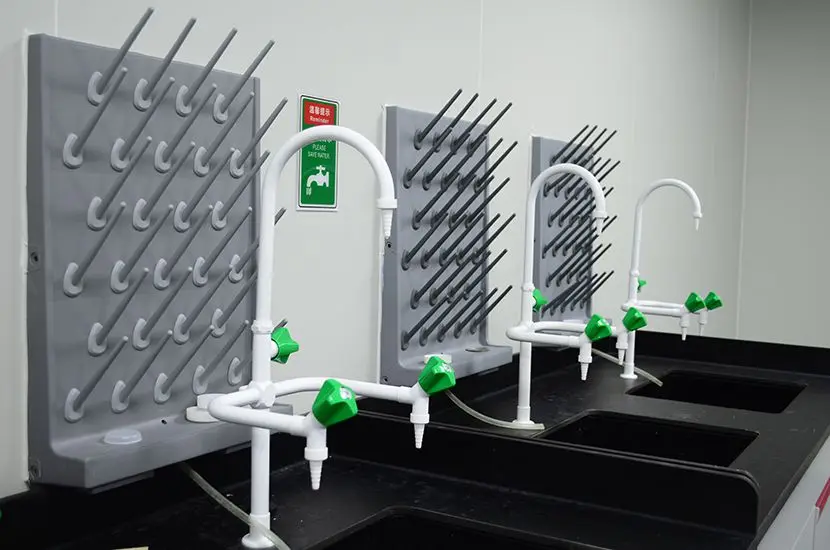
How to get a Battery UN38.3 Test Report?
un38.3 refers to section 38.3 of Part III of the United Nations Manual of Tests and Criteria, specifically designed for the transportation of dangerous goods. Before transportation, lithium batteries must pass a series of tests including altitude simULation, thermal cycling, vibration, shock, external short circuit, impact, overcharge, and forced discharge to ensure their safety during transport. If lithium batteries are not installed in equipment, they must also pass a 1.2-meter free fall test.
According to civil aviation regulations, airlines and airport cargo departments must review the transportation documents for lithium batteries, including the UN38.3 safety test report for each battery model. This report can be provided by a third-party testing agency designated by civil aviation authorities or by battery manufacturers with testing capabilities. Without this report, civil aviation authorities will prohibit the air transport of lithium batteries.
Scope of un38.3 certification Products:
1. Various power lithium secondary batteries (e.g., batteries for electric vehicles, electric road vehicles, power tools, hybrid vehicles, etc.)
2. Various mobile phone batteries (e.g., lithium-ion batteries, lithium polymer batteries, etc.)
3. Various small secondary batteries (e.g., batteries for laptops, digital cameras, camcorders, cylindrical batteries, wireless communication batteries, portable DVD batteries, CD and MP3 player batteries, etc.)
4. Various primary batteries (e.g., lithium manganese batteries, etc.)

un38.3 testing Standards
International and EU standards:
- IEC/EN 62133 (Portable sealed secondary cells and batteries)
- IEEE 1625 (Rechargeable batteries for portable computers)
- IEEE 1725 (Rechargeable batteries for mobile phones)
- IEC/EN 60086-1, 60086-2, 60086-3 (Primary batteries)
- IEC/EN 60896-21 & 22 (Valve-regulated stationary lead-acid batteries)
- IEC/EN 61056-1 & 2 (Portable valve-regulated lead-acid batteries)
- IEC/EN 61951-1 (Nickel-cadmium batteries)
- IEC/EN 61951-2 (Nickel-metal hydride batteries)
- IEC/EN 61959
- IEC/EN 61851-1, 21, & 22
- IEC/EN 62196
- IEC/en 60950 (IT product testing)
- IEC/EN 61960 (Portable rechargeable cells and lithium batteries)
- IEC/EN 62282 (Fuel cells)
UN38.3 Test Items
- T.1 Altitude Simulation Test: Conducted at a pressure ≤ 11.6kPa and a temperature of 20±5°C.
- T.2 Thermal Test: High and low-temperature shock test conducted at 75±2°C and -40±2°C, with storage time ≥ 6h at extreme temperatures, transition time ≤ 30min, 10 shocks, and storage at room temperature (20±5°C) for 24h. Total test duration is at least one week.
- T.3 Vibration Test: Sine vibration with a logarithMIC frequency sweep from 7Hz to 200Hz within 15 minutes, repeated 12 times in three directions within 3 hours.
- T.4 Shock Test: Half-sine shock at 150g, 6ms, or 50g, 11ms, conducted three times in each direction, totaling 18 times.
- T.5 External Short Circuit Test: Conducted at 55±2°C with external resistance <0.1Ω, short-circuiting until battery temperature returns to 55±2°C for 1 hour.
- T.6 Impact Test: A 9.1kg weight dropped from a height of 61±2.5cm onto a battery placed on a 15.8mm diameter rod, measuring surface temperature.
Criteria for Passing the Tests
- T.1 - T.4: No mass loss, no leakage, no venting, no disassembly, no rupture, no fire, open-circuit voltage not less than 90% of the pre-test value.
- T.5 - T.6: Surface temperature not exceeding 170°C, no disassembly, no rupture, no fire within 6 hours.
- T.7 - T.8: No disassembly, no fire within 7 days.
Document Preparation Checklist
- Application form
- Packaging declaration
- Complete set of circuit diagrams: including electrical schematic and wiring diagrams (size A4)
- Product user manual
- Product parts list
- Product assembly drawings (structural drawings) and main component structure diagrams (size A4)
- Product nameplate (label)
- Other product feature description materials
China JJR Laboratory, an IEC 17025 authorized lab, offers UN38.3 testing services in China at lower costs, potentially saving companies 30% on testing fees.
Email:hello@jjrlab.com
Write your message here and send it to us
 Weee authorised representative germany
Weee authorised representative germany
 Where to Apply for 2026 Air & Sea Transport Ce
Where to Apply for 2026 Air & Sea Transport Ce
 Guide to IEC Test Reports for Lighting Exports
Guide to IEC Test Reports for Lighting Exports
 IEC/EN 62471 and IEC/EN 62778 (Photobiological Saf
IEC/EN 62471 and IEC/EN 62778 (Photobiological Saf
 How to get IEC 62471/EN 62471 Test Reports?
How to get IEC 62471/EN 62471 Test Reports?
 IEC 62471 Photobiological Safety Certification
IEC 62471 Photobiological Safety Certification
 EMC Item – Introduction to Radiated Emission Test
EMC Item – Introduction to Radiated Emission Test
 IEC 62471 Photobiological Safety of Lamps and Lamp
IEC 62471 Photobiological Safety of Lamps and Lamp
Leave us a message
24-hour online customer service at any time to respond, so that you worry!




